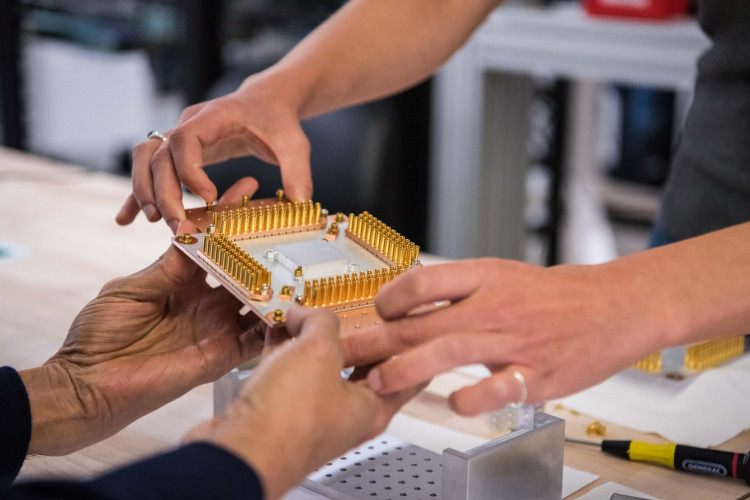Google's team of researchers, along with experts at NASA and the Oak Ridge National Laboratory, is officially claiming to have achieved perhaps the most significant milestone in technology - the quantum supremacy.
Google revealed the results in the journal Nature on Wednesday after more than 10 years of research work involving its own Sycamore quantum computing chip. Exemplifying how hard the work is, though, the quantum supremacy paper has a whopping 77 authors.
"Our machine performed the target computation in 200 seconds, and from measurements in our experiment we determined that it would take the world's fastest supercomputer 10,000 years to produce a similar output," Google researchers said in a blog post about the work.
However, Google's achievement has met the criticism of key quantum computer competitor IBM, who said in a blog post that any computer could easily perform the task in 2.5 days.
IBM argues that the 10,000 years Google is claiming is an exaggeration, saying that the search giant "failed to fully account for plentiful disk storage" when estimating how long its traditional supercomputer would take to perform the calculation.
It doesn't surprise us one bit why IBM would try to rain on Google's parade, and despite its efforts, the research community has welcomed the quantum leap. The New York Times has even quoted scientists likening the achievement to the first plane flight made possible by the Wright brothers in 1903.
Google's achievement doesn't mean that quantum computers will soon be a norm when it comes to performing practical tasks, but its findings serve proof that this is the future we're heading towards.
Meanwhile, Scott Aaronson, a quantum computing researcher, compared Google's quantum supremacy to man's first step on the moon. Google Chief Executive Sundar Pichai took to Twitter to celebrate the milestone, calling it a "big breakthrough."
The industry is wholly devoted to improving the computers that we use today, but only a handful of companies are dedicated to quantum computer studies and its practical use in the future. Apart from Google and IBM, Rigetti Computing, Intel, Honeywell, and Microsoft are also in the league.
Quantum computers are a complicated device, requiring an environment cold enough to preserve the exotic quantum properties of the computer.
Google aims to make the Sycamore quantum processors accessible to companies and researchers keen on developing actual and practical applications. The company is also bent on investing more resources to design a new quantum computer that's "fault-tolerant" to make it work for different kinds of applications and not just one.






